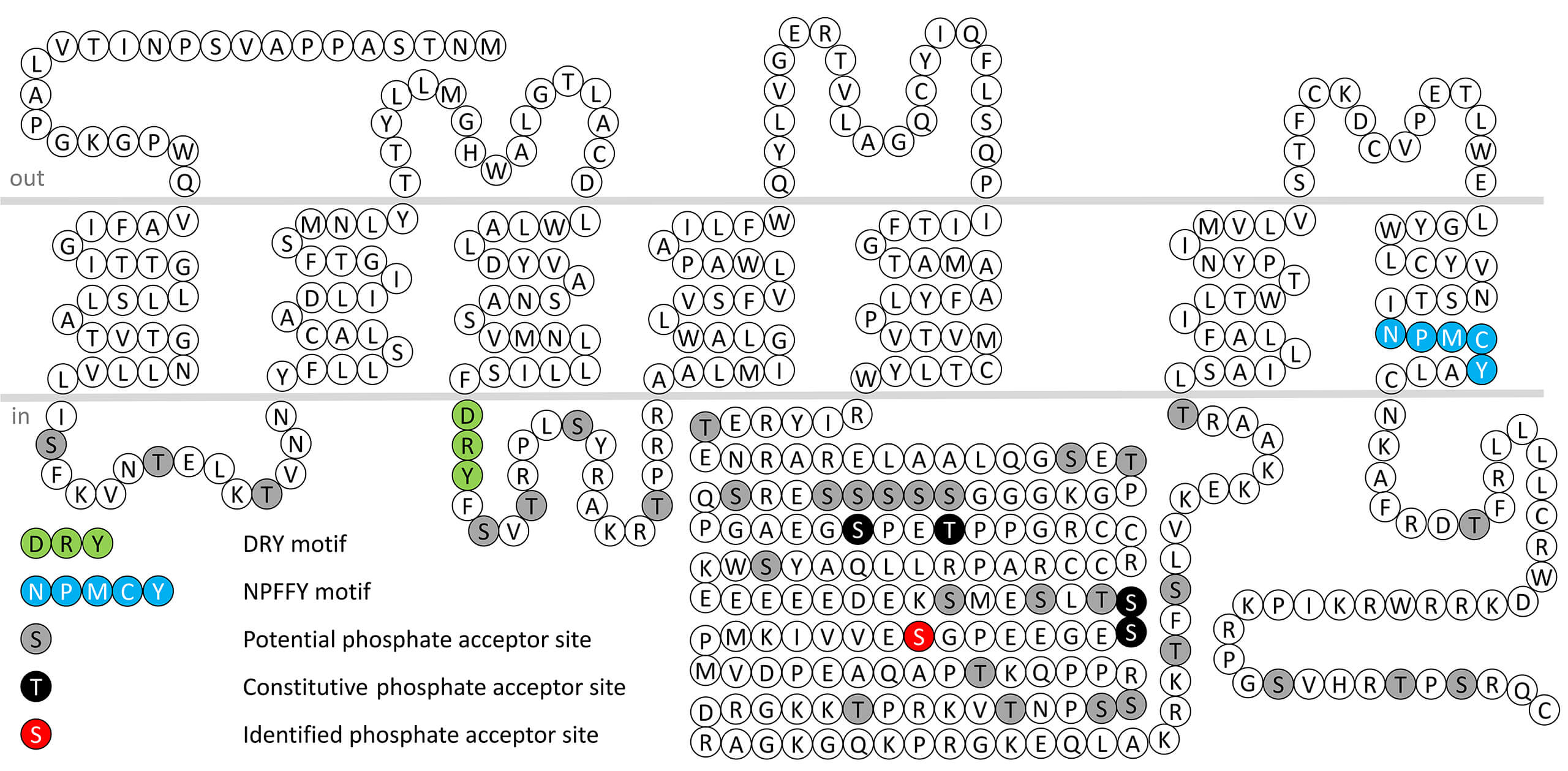M1 Muscarinic Acetylcholine Receptor Antibodies

Functionally, M1-muscarinic receptors preferentially couple to Gq/11 proteins. M1 receptor knockout mice demonstrate a pronounced increase in locomotor activity, which has been suggested to impact on memory and learning and may provide a model for learning deficits in conditions such as attention deficit hyperactivity disorder. M1 and M1/M4 agonists are under intense consideration as novel anti-Alzheimer drugs. M1 receptor activity is regulated by phosphorylation of serine298 in the 3rd intracellular loop. This nomenclature refers to the human M1 but is highly conserved in mice and rats. For more information on M1 receptor pharmacology please refer to the IUPHAR database. For further reading refer to:
Caulfield MP, Birdsall NJ. International Union of Pharmacology. XVII. Classification of muscarinic acetylcholine receptors. Pharmacol Rev. 1998 Jun;50(2):279-90. PMID: 9647869.
Wess J, Eglen RM, Gautam D. Muscarinic acetylcholine receptors: mutant mice provide new insights for drug development. Nat Rev Drug Discov. 2007 Sep;6(9):721-33. doi: 10.1038/nrd2379. PMID: 17762886.
Birdsall NJM, Bradley S, Brown DA, Buckley NJ, Challiss RJ, Christopoulos A, Eglen RM, Ehlert F, Felder CC, Hammer R, Kilbinger HJ, Lambrecht G, Langmead C, Mitchelson F, Mutschler E, Nathanson NM, Schwarz RD, Thal D, Tobin AB, Valant C, Wess J. Acetylcholine receptors (muscarinic) in GtoPdb v.2021.3. IUPHAR/BPS Guide to Pharmacology CITE. 2021; 2021(3).
 pS298-M1 (phospho-M1 Muscarinic Acetylcholine...
pS298-M1 (phospho-M1 Muscarinic Acetylcholine... 

